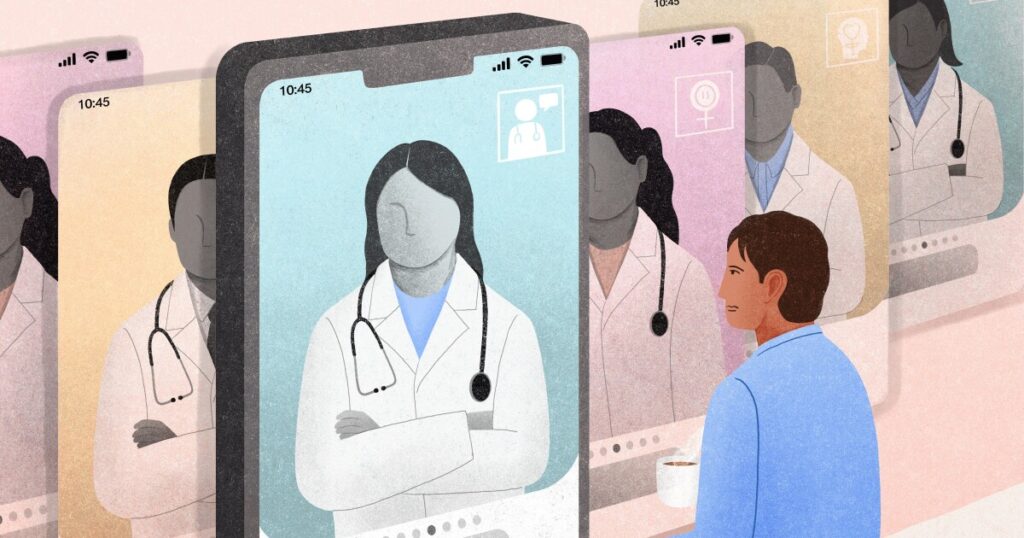The Rise of Telehealth: Navigating the World of Online Medical Care
As telehealth gains popularity, many people are wondering about its reliability compared to traditional doctor visits. With advertisements for online medical services becoming more frequent, questions about safety and effectiveness are on the rise.
A primary care physician who operates out of a traditional office setting frequently encounters inquiries about the legitimacy of virtual healthcare options. Patients express concerns about the convenience of telehealth services, which offer everything from mental health consultations to prescriptions for medications like Viagra.
The appeal of telehealth is undeniable, offering quick appointments from the comfort of one’s home. However, it comes with its own set of challenges, including unexpected costs and the lack of personal connection with healthcare providers.
Do you have a medical question you’d like an honest answer on? Write us at thrive@npr.org, and we’ll consider your question for the column.
When considering telehealth, it’s essential to weigh various factors:
Different Approaches for Different Needs
With the rapid expansion of telehealth options since Medicare’s endorsement during the COVID-19 pandemic, it can be challenging to navigate the numerous online healthcare services available. Telehealth can be conducted through video, phone, or online forms. Each method suits different health concerns.
For straightforward conditions like erectile dysfunction or hair loss, online forms are often sufficient. But for issues like skin rashes, video consultations provide a better diagnosis. In cases where technology poses a challenge, phone consultations serve as a simpler alternative.
Limitations of Virtual Care
Telehealth falls short for conditions needing physical examinations, such as gynecological check-ups or joint assessments. Complex medical cases benefit from in-person evaluations, offering comprehensive insights through physical examinations and observations.
Specialized Care and Its Caveats
Telehealth platforms often provide specialized care for issues like menopause or mental health. While these services offer expertise, they focus solely on specific concerns, necessitating follow-ups with primary care doctors for unrelated issues. Patients should consider the ease of accessing follow-up appointments or handling complications with telehealth services.
Cost Considerations
Telehealth can potentially reduce costs by preventing unnecessary emergency visits, as suggested by research. However, consulting with unfamiliar providers might incur additional costs, especially if further testing is required. Many platforms do not accept insurance, necessitating careful examination of the billing practices.
The Importance of Doctor-Patient Relationships
The convenience of telehealth can sometimes backfire. Studies, such as one from JAMA Network, indicate that virtual consultations with providers unfamiliar with the patient can lead to increased emergency room visits. Conversely, ongoing relationships with family doctors who know the patient’s history can reduce such instances.
Ultimately, integrating telehealth with regular doctor visits may optimize healthcare outcomes. Many primary care physicians are open to supplementing in-person visits with virtual consultations, offering flexibility and continuity of care.
Before opting for expensive online services, consult with your local primary care provider. They may also offer telehealth appointments, allowing you to enjoy the convenience without compromising the quality of care. And remember, whether online or in-person, healthcare professionals are generally indifferent to your choice of attire during consultations.
Mara Gordon is a family physician at Cooper Medical School of Rowan University in Camden, New Jersey. She writes the Substack newsletter Your Doctor Friend.
—
Read More Michigan News










